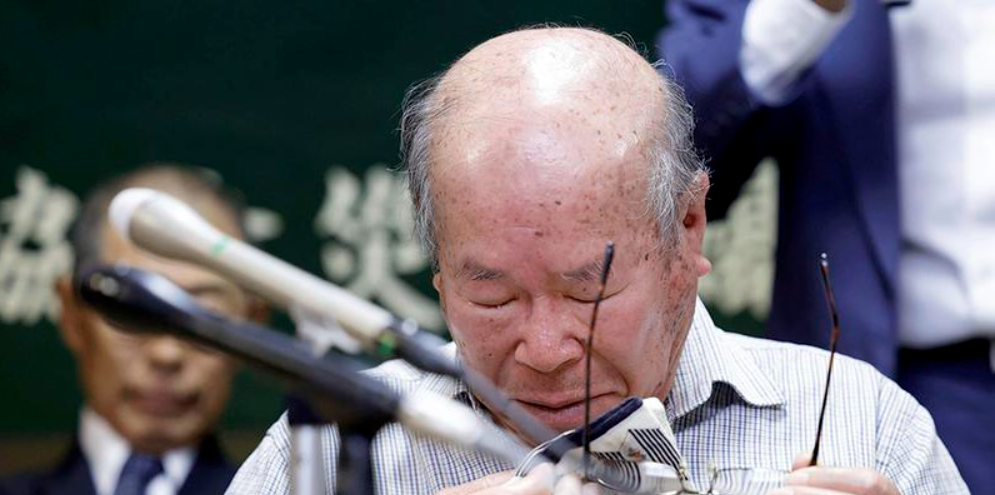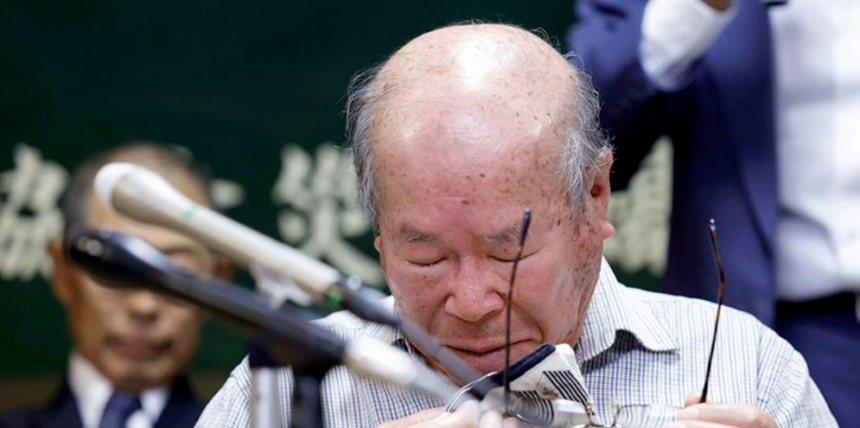Introduction
Nobel Peace Prize world fraught with geopolitical tensions, the risk of nuclear conflict remains one of the most existential threats facing humanity. Recently, Nobel Peace Prize winners from Japan have issued a stark warning about the growing dangers of nuclear war. These laureates, many of whom are survivors of the atomic bombings of Hiroshima and Nagasaki during World War II, have dedicated their lives to advocating for peace and nuclear disarmament. Their message is particularly poignant given Japan’s unique history as the only country to have experienced the devastating effects of nuclear weapons.
This article delves into the Nobel Peace Prize laureates’ warnings, the global context of nuclear risks, and the urgent need for disarmament to prevent a catastrophic conflict. It explores the historical significance of Japan’s experience with nuclear warfare, the current international landscape of nuclear armament, and the efforts of activists and organizations to push for a nuclear-free world.
The Legacy of Hiroshima and Nagasaki
Japan’s position as a global advocate for nuclear disarmament is rooted in its harrowing experience during World War II. On August 6, 1945, the United States dropped an atomic bomb on the city of Hiroshima, followed by a second bomb on Nagasaki three days later. The destruction was unprecedented, with an estimated 200,000 people killed either instantly or from radiation poisoning in the months that followed. The survivors, known as hibakusha, endured not only the physical and psychological scars of the bombings but also the long-term health consequences of radiation exposure.
The atomic bombings left an indelible mark on Japan and the world. For the first time, humanity had witnessed the terrifying power of nuclear weapons. The immediate aftermath of the bombings prompted global outrage, and the horrors of nuclear warfare became a central issue in the post-war peace movement. For many Japanese, particularly the hibakusha, the bombings underscored the urgent need to prevent future use of nuclear weapons.
Nobel Peace Prize Laureates: Voices of Conscience
Several Nobel Peace Prize winners from Japan, including individuals and organizations, have been at the forefront of the global movement for nuclear disarmament. One of the most notable figures is Dr. Shuntaro Hida, a hibakusha who dedicated his life to treating survivors of the atomic bomb and raising awareness about the long-term health effects of radiation. Another key figure is Setsuko Thurlow, a Hiroshima survivor and prominent activist who played a crucial role in the International Campaign to Abolish Nuclear Weapons (ICAN), which won the Nobel Peace Prize in 2017.
ICAN’s Nobel Prize was awarded for its efforts to bring about the Treaty on the Prohibition of Nuclear Weapons, the first legally binding international agreement to comprehensively prohibit nuclear weapons. This treaty, which entered into force in 2021, represents a significant step toward global disarmament. However, many nuclear-armed nations, including the United States, Russia, and China, have yet to sign the treaty, leaving the world still vulnerable to the threat of nuclear conflict.
These Nobel laureates from Japan, along with organizations like ICAN and Peace Boat, have continued to warn of the catastrophic consequences of nuclear war. They emphasize that the world must not forget the lessons of Hiroshima and Nagasaki and that the international community must work together to eliminate nuclear weapons before it is too late.
The Growing Risk of Nuclear War
While the Cold War era may have been defined by the threat of nuclear conflict between the United States and the Soviet Union, the risk of nuclear war has not diminished in the 21st century. On the contrary, tensions between nuclear-armed states have increased in recent years, raising concerns about the possibility of a catastrophic conflict.
One of the most alarming developments is the ongoing modernization of nuclear arsenals by major powers. Both the United States and Russia, which together possess over 90% of the world’s nuclear weapons, have invested heavily in upgrading their nuclear capabilities. This includes the development of new, more advanced nuclear weapons systems that are potentially more destructive and capable of evading missile defense systems. China, too, has expanded its nuclear arsenal, raising concerns about a new arms race in the Asia-Pacific region. 
In addition to the major nuclear powers, regional conflicts involving nuclear-armed states have also heightened the risk of nuclear war. The long-standing rivalry between India and Pakistan, both of which possess nuclear weapons, remains a source of concern, particularly given the ongoing tensions over Kashmir. Similarly, the nuclear ambitions of North Korea have been a persistent source of instability in East Asia, with the country’s leadership frequently threatening to use nuclear weapons against its perceived enemies.
The threat of nuclear conflict is not limited to state actors. The possibility of nuclear weapons falling into the hands of non-state actors, such as terrorist organizations, is another significant concern. The proliferation of nuclear materials and technologies has made it increasingly difficult to ensure that these dangerous weapons do not end up in the wrong hands.
Misconceptions About Nuclear Deterrence
One of the central arguments used to justify the continued existence of nuclear weapons is the concept of deterrence. Proponents of nuclear deterrence argue that the possession of nuclear weapons prevents conflict by ensuring that any potential aggressor would face devastating retaliation. This theory, often referred to as Mutually Assured Destruction (MAD), has been a cornerstone of nuclear policy since the Cold War.
However, Nobel Peace Prize winners from Japan and other disarmament advocates challenge the validity of this argument. They point out that nuclear deterrence is based on the assumption that all actors involved will behave rationally and that no mistakes will be made. In reality, the risk of human error, miscommunication, or accidental escalation is always present. The Cuban Missile Crisis of 1962, when the world came perilously close to nuclear war, is a stark reminder of how quickly tensions can spiral out of control.
Moreover, the existence of nuclear weapons does not prevent conflict; it only raises the stakes. As long as nuclear weapons exist, the possibility of their use—whether intentional or accidental—remains. Nobel laureates from Japan argue that true security cannot be achieved through the threat of annihilation. Instead, they advocate for a world in which nuclear weapons are completely abolished, and international conflicts are resolved through diplomacy, cooperation, and mutual respect.
The Humanitarian Consequences of Nuclear War
One of the most compelling arguments for nuclear disarmament is the humanitarian impact of nuclear weapons. The bombings of Hiroshima and Nagasaki provided a glimpse of the horrors that nuclear war would unleash. The immediate effects of a nuclear explosion include intense heat, massive shockwaves, and radiation that can cause widespread death and destruction.
In addition to the immediate casualties, nuclear weapons also have long-term effects on human health and the environment. Survivors of the Hiroshima and Nagasaki bombings, the hibakusha, suffered from chronic health problems such as cancer, birth defects, and other radiation-related illnesses. The environmental damage caused by nuclear explosions can also be catastrophic, contaminating air, water, and soil for generations.
A full-scale nuclear Nobel Peace Prize war between major powers would have even more devastating consequences. Studies have shown that a large-scale nuclear exchange could trigger a “nuclear winter,” in which the smoke and soot from burning cities would block out sunlight, leading to a dramatic drop in global temperatures. This, in turn, could cause widespread crop failures, famine, and the collapse of ecosystems. The result would be a humanitarian catastrophe on an unprecedented scale, with millions—if not billions—of lives at risk.
Global Efforts for Nuclear Disarmament
Nobel Peace Prize Despite the growing risks of nuclear war, there is still hope for disarmament. Nobel Peace Prize laureates from Japan, along with organizations like ICAN, have been instrumental in pushing for international efforts to eliminate nuclear weapons. The Treaty on the Prohibition of Nuclear Weapons, which was adopted by the United Nations in 2017, represents a significant step forward in the global disarmament movement. 
The treaty, Nobel Peace Prize which has been signed by 91 countries and ratified by 68, prohibits the development, testing, production, stockpiling, and use of nuclear weapons. It also includes provisions for the assistance of victims of nuclear weapons use and testing, as well as environmental remediation. While the treaty has not yet been signed by any of the major nuclear powers, it sends a powerful message that the international community is serious about achieving a world without nuclear weapons.
In addition to the treaty, Nobel Peace Prize grassroots movements around the world continue to advocate for disarmament. Peace activists, civil society organizations, and survivors of nuclear warfare have played a crucial role in raising awareness about the dangers of nuclear weapons and pressuring governments to take action.
The Role of Japan in the Global Peace Movement
Nobel Peace Prize Japan’s unique experience with nuclear warfare has positioned it as a leader in the global peace movement. Japanese Nobel laureates, hibakusha, and organizations have tirelessly campaigned for nuclear disarmament, using their country’s tragic history as a reminder of the catastrophic consequences of nuclear war. Japan has also consistently advocated for disarmament at international forums, including the United Nations.
However, Nobel Peace Prize Japan’s role in the peace movement is not without contradictions. Despite its strong anti-nuclear stance, Japan remains under the U.S. nuclear umbrella, meaning that it relies on the U.S. for its security and, by extension, its nuclear deterrence. This has led to tensions between Japan’s disarmament advocates and its government, which has been reluctant to fully embrace the Treaty on the Prohibition of Nuclear Weapons.
Nevertheless Nobel Peace Prize, the voices of Japan’s Nobel Peace Prize winners and disarmament advocates continue to resonate on the global stage. Their message is clear: the world must not forget the lessons of Hiroshima and Nagasaki, and it must act decisively to prevent a nuclear war that could destroy civilization as we know it.
Conclusion
The warnings issued by Nobel Peace Prize winners from Japan about the risk of nuclear war are a sobering reminder of the dangers that still exist in the world today. As geopolitical tensions rise and nuclear arsenals are modernized, the threat of a catastrophic conflict looms larger than ever. The experience of Hiroshima and Nagasaki serves as a powerful testament to the devastating consequences of nuclear warfare, and the voices of the hibakusha and disarmament advocates must be heeded.
The Nobel Peace Prize path to a nuclear-free world will not be easy, but it is essential for the survival of humanity. Global efforts to eliminate nuclear weapons, such as the Treaty on the Prohibition of Nuclear Weapons, represent a critical step forward. However, true progress will require the cooperation of all nations, particularly the major nuclear powers.
Ultimately, the call for nuclear disarmament is not just about preventing war—it is about ensuring a future of peace, security, and human dignity for all. The Nobel Peace Prize winners from Japan have made it their life’s mission to fight for this future, and their message is one that the world cannot afford to ignore. ALSO READ:- Elon Musk Unveils Tesla’s ‘Cybercab’: The Future of Autonomous Driving 2024





